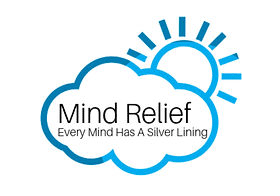The importance of ADHD Assessment, Diagnosis, and Treatment


The Role of Assessment in ADHD
Attention Deficit Hyperactivity Disorder (ADHD) is a neurodevelopmental condition that affects millions of individuals of all ages. Characterised by symptoms such as inattention, hyperactivity, and impulsivity, ADHD can significantly impact academic achievement, work performance, relationships, and overall quality of life. The journey from recognising symptoms to receiving appropriate care is crucial and involves three key steps: assessment, diagnosis, and treatment. Understanding the importance of each stage can make a meaningful difference.
A thorough assessment is greatly effective to ADHD care. The process typically involves:
Comprehensive Evaluation: A detailed clinical interview, behavioural questionnaires, and
input from family members, teachers, or employers help create a holistic picture of an
individual’s functioning.
Rule-Out of Other Conditions: Many conditions such as anxiety, depression, learning disabilities, and sleep disorders can mimic or coexist with ADHD. Assessment ensures an accurate understanding of what is truly occurring.
identify individual strengths, weaknesses, and unique needs, forming the foundation for an
effective care plan.
The Importance of Diagnosis
A formal diagnosis is more than a label it’s a gateway to support, understanding, and tailored
intervention.
Access to Resources: Official diagnosis often allows individuals to access educational accommodations, workplace adjustments, and support services.
Validation: For many, a diagnosis provides relief and validation, replacing years of confusion or self-blame with an explanation rooted in neurobiology.
Reducing Stigma: Understanding ADHD as a medical condition can help counteract negative stereotypes, fostering empathy and reducing shame or guilt.
Facilitating Communication: Diagnosis enables clearer communication with family, educators, employers, and healthcare professionals about needs and expectations.
strengths and address their challenges more effectively.

Talk to me today!
The Value of Effective Treatment
Once ADHD is identified, a range of treatment options can be considered. Evidence-based
interventions empower individuals to manage symptoms and thrive.
Pharmacological Treatments
Medications, such as stimulants and non-stimulants, are often prescribed to help regulate attention,rReduce impulsivity, and manage hyperactivity. For many, medication can dramatically improve day- to-day functioning, though it is typically most effective as part of a comprehensive treatment plan.interventions empower individuals to manage symptoms and thrive.
“I am so glad I came to Mind Relief, I felt at ease to talk about my issues, which I have never spoken about before and it has certainly made a difference in my life.”
“I found the experience hugely beneficial, Sadef was constructive and gave compassionate help.”
“Sadef is a fantastic therapist. I had a good experience as Sadef was so attentive and focused on helping me reach my goals in such a short time frame, which I didnt expect.”
Psychological and Behavioural Therapies
individuals develop coping strategies, improve organisation, and boost self-esteem.
